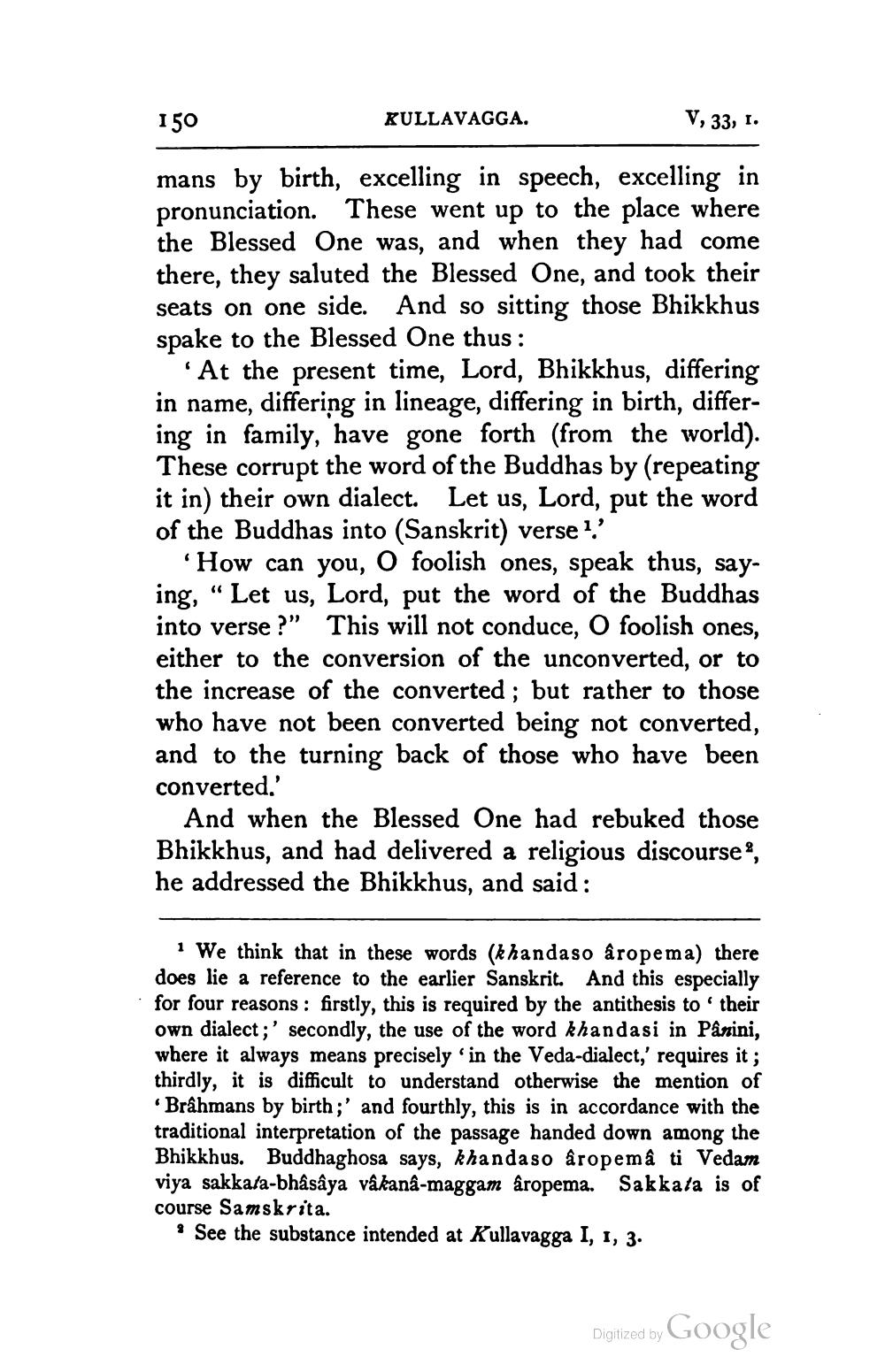________________
150
V, 33, I.
mans by birth, excelling in speech, excelling in pronunciation. These went up to the place where the Blessed One was, and when they had come there, they saluted the Blessed One, and took their seats on one side. And so sitting those Bhikkhus spake to the Blessed One thus:
KULLAVAGGA.
'At the present time, Lord, Bhikkhus, differing in name, differing in lineage, differing in birth, differing in family, have gone forth (from the world). These corrupt the word of the Buddhas by (repeating it in) their own dialect. Let us, Lord, put the word of the Buddhas into (Sanskrit) verse1.'
'How can you, O foolish ones, speak thus, saying, "Let us, Lord, put the word of the Buddhas into verse?" This will not conduce, O foolish ones, either to the conversion of the unconverted, or to the increase of the converted; but rather to those who have not been converted being not converted, and to the turning back of those who have been converted.'
And when the Blessed One had rebuked those Bhikkhus, and had delivered a religious discourse2, he addressed the Bhikkhus, and said:
1 We think that in these words (khandaso âropema) there does lie a reference to the earlier Sanskrit. And this especially for four reasons: firstly, this is required by the antithesis to their own dialect; secondly, the use of the word khandasi in Pâini, where it always means precisely 'in the Veda-dialect,' requires it; thirdly, it is difficult to understand otherwise the mention of 'Brahmans by birth;' and fourthly, this is in accordance with the traditional interpretation of the passage handed down among the Bhikkhus. Buddhaghosa says, khandaso âropemâ ti Vedam viya sakkara-bhâsâya vâkanâ-maggam âropema. Sakkata is of course Samskrita.
See the substance intended at Kullavagga I, 1, 3.
Digitized by Google




